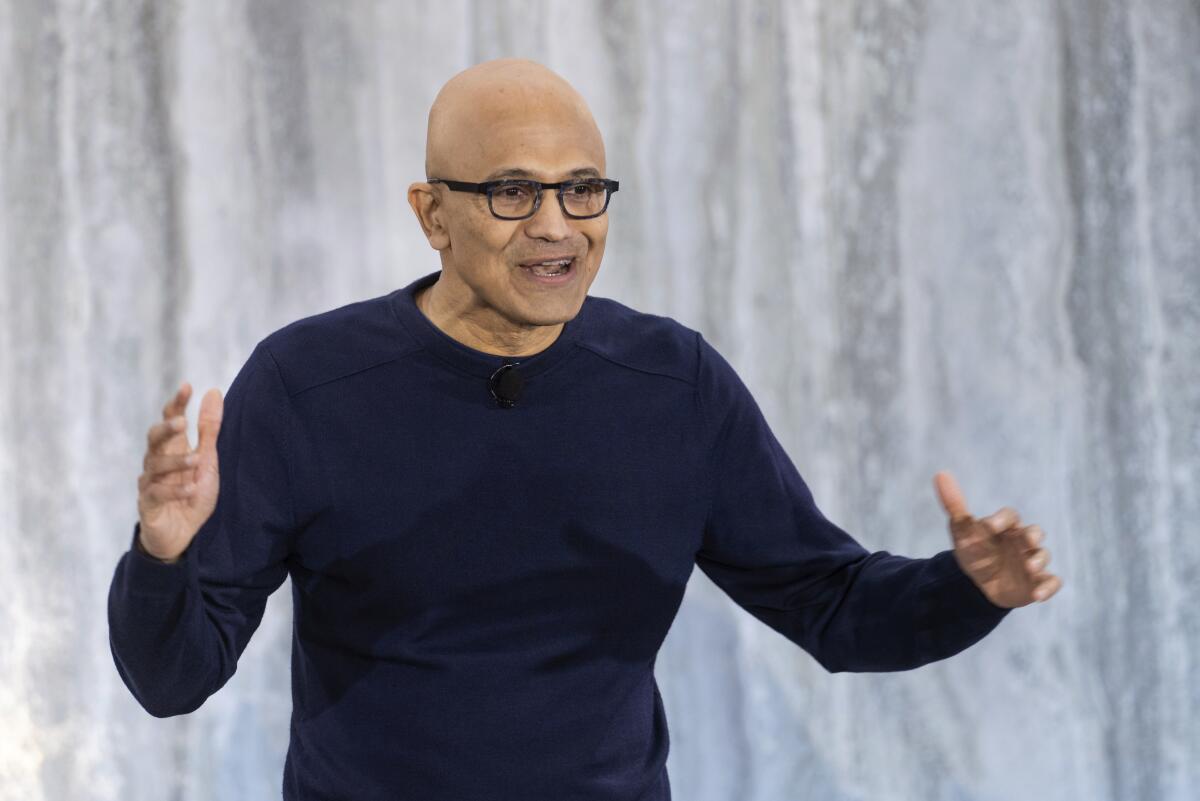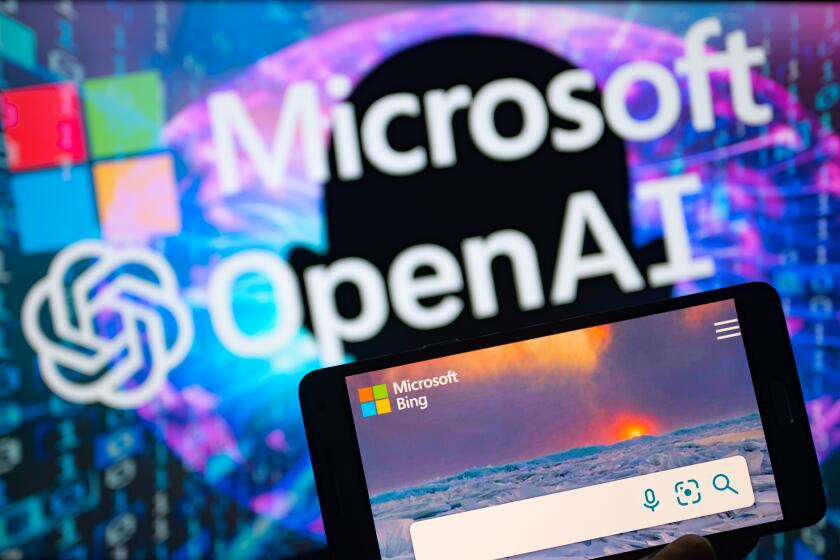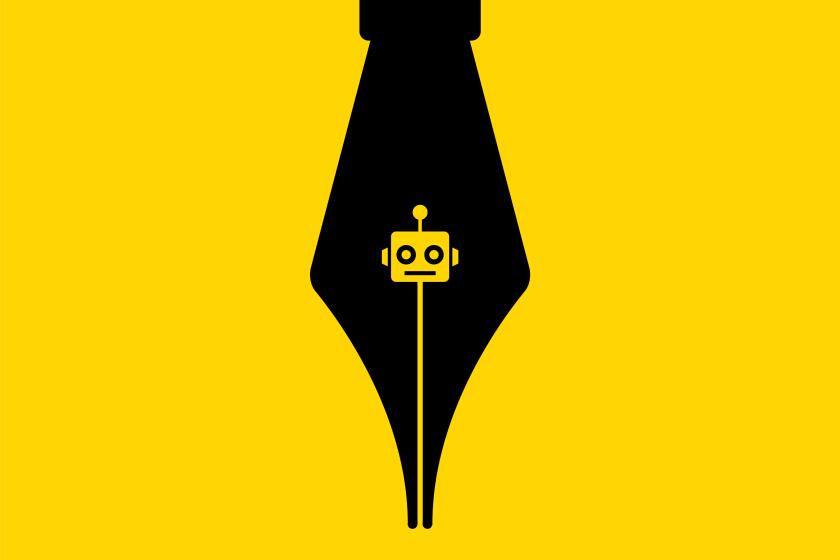Microsoft to add Bing search to OpenAI’s ChatGPT in battle with Google

- Share via
Microsoft is bringing its Bing search engine to OpenAI’s ChatGPT, further tightening ties with the artificial intelligence startup in a bid to challenge Google.
Microsoft said Bing would be part of the premium ChatGPT Plus service starting Tuesday, and the search engine will come to the regular version of the chatbot soon. Using Bing lets customers get up-to-the-minute information, whereas ChatGPT has been trained only on data through Sept. 20, 2021.
Microsoft is OpenAI’s biggest investor and a key partner, giving it an edge in the race to weave artificial intelligence into more software products. The startup, whose chatbot became a viral hit in the last year, has helped Microsoft attract customers to a cloud-based service that lets its Azure clients use OpenAI products. Azure OpenAI now has 4,500 customers, including Volvo, Ikea, Mercedes-Benz Group and Shell. That’s up from 2,500 customers at the end of last quarter.
Microsoft unveiled the Bing ChatGPT update Tuesday at a developer conference in Seattle. Earlier this month, OpenAI started adding web browsing as an optional capability to its paid Plus tier. That relied partly on Bing, though the arrangement wasn’t disclosed at the time.
Chief Executive Satya Nadella has been refocusing Microsoft’s products around AI programs called co-pilots — assistants that help users perform tasks in Bing and Office, as well as security and finance software, based on OpenAI’s GPT-4 technology. The software maker is trying to boost sales, attract more cloud computing business and better compete with Google in search. So far, the OpenAI partnership has helped Microsoft position itself at the forefront of a rapidly churning market for new types of AI tools.
‘This technology is going to reshape pretty much every software category,’ Microsoft Chief Executive Satya Nadella said Tuesday.
With the proliferation of AI-generated information, Microsoft said it will watermark such content so people know it’s not human-made. The company also said it will make those same tools available to developers to use.
“We’re giving you a bunch of amazing media provenance tools that will help users understand when they are seeing generated content or not,” Chief Technology Officer Kevin Scott told attendees at the conference. Scott didn’t elaborate on the technological underpinnings of these tools, except to say that they are “cryptographic” watermarks.
Microsoft also is letting outside software developers and companies write programs that tie in to its OpenAI-based artificial intelligence software. As part of that push, Instacart, Redfin, Zillow Group and Kayak Software will work with Bing’s AI, Microsoft said. Adobe and Atlassian, meanwhile, will release features for Microsoft’s corporate AI software that can be used with the Office suite.
In order to let other companies write features and programs that make use of these AI products, OpenAI is allowing them to develop so-called plugins to work with ChatGPT. Microsoft said Tuesday that it will use a similar model. Companies and programmers can use the same plugins across ChatGPT and Microsoft’s own consumer and corporate AI software.
About 50 software makers, including ServiceNow, are developing these sorts of plugins for Microsoft’s corporate AI assistant. Called Microsoft 365 Copilot, the software is being tested with hundreds of customers. Microsoft pledges to have thousands of plugins for the corporate software by the time it’s released to everyone.
Cover letters are notoriously hard to write. These job seekers decided to outsource the task to ChatGPT, an AI chatbot, with impressive results.
On Tuesday, the Redmond, Wash.-based company also discussed a new co-pilot, this one for Windows 11, starting with a preview version in June.
Windows Copilot will be accessible from a button on the computer screen’s task bar, which opens a side panel that customers can use as an assistant. It will help them perform actions such as copying and pasting text, as well as rewriting, summarizing and explaining content. Windows users can also ask it questions as they do with the Bing AI chat.
More to Read
Inside the business of entertainment
The Wide Shot brings you news, analysis and insights on everything from streaming wars to production — and what it all means for the future.
You may occasionally receive promotional content from the Los Angeles Times.












